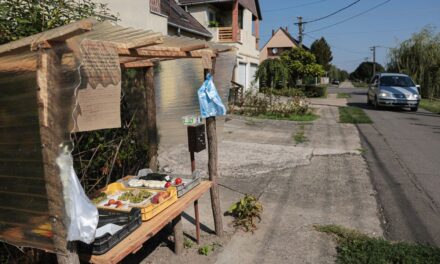After 40 years of work, women can retire with full benefits, the pension has increased by more than two and a half times.
There has never been a government in the history of the country that has done as much for Hungarian women and mothers as the current one. Thanks to the measures taken in favor of women, women's employment has improved a lot, and raising children is no longer an obstacle to employment, unlike during the time of the left-wing government.
Today is International Women's Day, but the government pays attention to women not only on this honored day. Over the past few years, many steps have made it easier to balance work and family, and have helped women who are single, have large families, or are in trouble.
It wasn't always like this: the way the left thinks about women is well reflected by the fact that they always just took away from mothers and women. The Gyurcsánys reduced the duration of the unemployment benefit and the age limit of the family allowance, abolished the regular child protection support, canceled tax benefits, are still constantly attacking the child protection law, and family support measures are regularly voted down in the parliament. Their candidate for prime minister, Péter Márki-Zay, recently earned the displeasure of many by praising Klára Dobrev in a special way: he talked about how well Dobrev achieved a good result in the pre-election farce "for being a woman". This is roughly the opinion of István Hiller, who believes that women are needed in the MSZP because "besides the ratio, emotions are also needed".
At the same time, one of the main pillars of the national government's policy is the respect and appreciation of women and mothers. It is a real curiosity, for example, that mothers who have four or more children do not have to pay income tax at all. There is nothing like it anywhere else in the world. The family tax allowance is also a huge help, which increases the family coffers by HUF 100,000 per month in the case of three children, and mothers' return to work is also supported with the grandparents' allowance, the graduate allowance and the extra allowance. Childbearing is also encouraged by the Csoc, the baby loan, or the fact that having three children means the mother's tuition and student loan debt is waived.
The Fidesz government also made it possible for women, regardless of age, to retire with a full pension after forty years of work.
With the increase in the childcare fee (CZD), women who stay at home with their children now receive 100 percent of their salary for the first six months after giving birth. In practice, this means that they will receive more money than their previous net salary. The maximum childcare fee (gyed) has also increased: since 2010, it has more than doubled - from HUF 102,000 to HUF 280,000.
Placement of mothers is made easier by compulsory kindergarten from the age of three, and children's placement during the day is also served by the development of nursery schools and kindergartens on an unprecedented scale. While the left closed 283 kindergartens between 2002 and 2010, during the Orbán government, 20,000 kindergarten and 19,000 kindergarten places were added in ten years.
The government has also done a lot to help abused women: in 2013, Fidesz tightened the punishment for domestic violence and even built a whole network of victim support centers so that every region of the country has a protected place where women in trouble can receive spiritual, legal and psychological help. or they may even receive financial assistance.
The government also gives special support to the Single Parent Center, which is meant to make the everyday lives of those raising their children unaccompanied - mostly mothers - easier, whether it's labor law counseling or child care, for example.
On the occasion of Women's Day, the Kopp Mária Institute for Population and Families (KINCS) draws attention to the fact that the employment of women in our country already exceeds the EU average. Under the left-wing governments, barely more than half of able-bodied women took up work, now three-quarters of them are working.
Source: Magyar Hírlap
Photo: Márton Koncz / Origo













